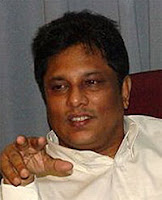Amira Hass, Hebrew born in 1956, daughter of two Holocaust survivors. She was educated at the Hebrew University of Jerusalem, studied the history of Nazism and the European left relation to the Holocaust.
After working in several different jobs, she began her journalist career in 1989 as a staff editor for Ha´aretz and started to report from the Palestinian territories in 1991. She had been in Gaza and in Ramallah; she is the first and only Israeli journalist who has lived there full-time.
Her report of events and her critical opinion to both official Israeli and Palestinian positions has exposed her to verbal attacks. But she continues to oppose towards to both authorities of government. She thinks that journalists have to monitor the power. This is the reason why she needs to understand, down to the last detail, to the best of her political and historical comprehension. To her, Gaza is the entire saga of the Israeli-Palestinian conflict. So she really wanted to try what it was like to be an Israeli under Israeli occupation. And she also thinks that change can come only through social movements and their interaction with the press.
In my opinion she is a brave and reckless journalist who risks her life in conflict territories fighting to give clear reporting about events without benefitting each government. And her articles are critical, objective and show a powerful fight against the power of governments.
After working in several different jobs, she began her journalist career in 1989 as a staff editor for Ha´aretz and started to report from the Palestinian territories in 1991. She had been in Gaza and in Ramallah; she is the first and only Israeli journalist who has lived there full-time.
Her report of events and her critical opinion to both official Israeli and Palestinian positions has exposed her to verbal attacks. But she continues to oppose towards to both authorities of government. She thinks that journalists have to monitor the power. This is the reason why she needs to understand, down to the last detail, to the best of her political and historical comprehension. To her, Gaza is the entire saga of the Israeli-Palestinian conflict. So she really wanted to try what it was like to be an Israeli under Israeli occupation. And she also thinks that change can come only through social movements and their interaction with the press.
In my opinion she is a brave and reckless journalist who risks her life in conflict territories fighting to give clear reporting about events without benefitting each government. And her articles are critical, objective and show a powerful fight against the power of governments.
I think it is time that Israeli and Palestinian authorities think about the social welfare of their people because civilians do not want war and death anymore because children are the biggest sufferers.














